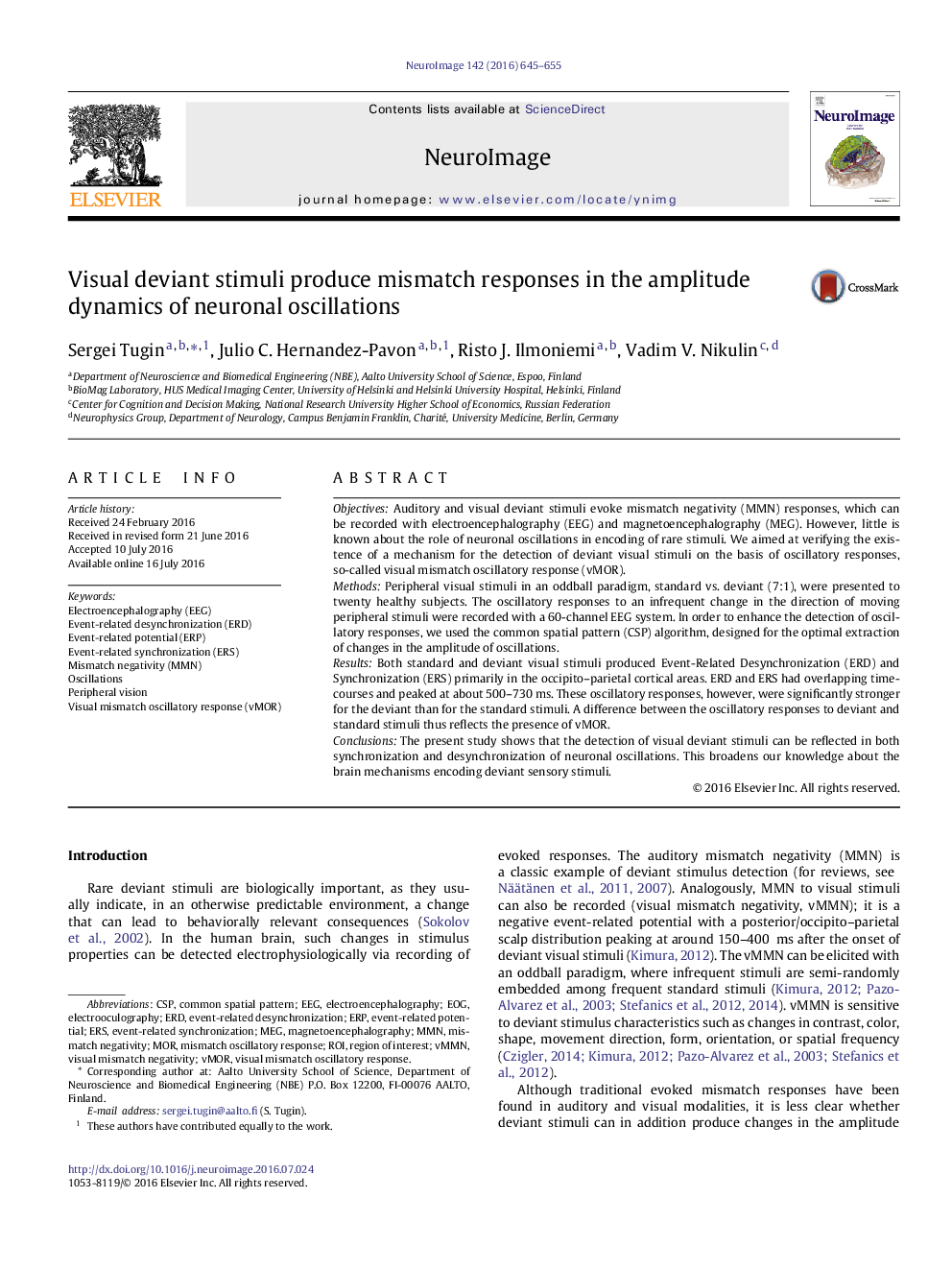| Article ID | Journal | Published Year | Pages | File Type |
|---|---|---|---|---|
| 5631468 | NeuroImage | 2016 | 11 Pages |
â¢Oscillatory EEG responses to deviant peripheral visual stimuli were analyzed.â¢These responses were stronger for deviant than for standard stimuli.â¢Oscillatory responses are associated with the encoding of rare stimuli.â¢Peripheral deviant stimuli produce changes in oscillation but not in ERP.
ObjectivesAuditory and visual deviant stimuli evoke mismatch negativity (MMN) responses, which can be recorded with electroencephalography (EEG) and magnetoencephalography (MEG). However, little is known about the role of neuronal oscillations in encoding of rare stimuli. We aimed at verifying the existence of a mechanism for the detection of deviant visual stimuli on the basis of oscillatory responses, so-called visual mismatch oscillatory response (vMOR).MethodsPeripheral visual stimuli in an oddball paradigm, standard vs. deviant (7:1), were presented to twenty healthy subjects. The oscillatory responses to an infrequent change in the direction of moving peripheral stimuli were recorded with a 60-channel EEG system. In order to enhance the detection of oscillatory responses, we used the common spatial pattern (CSP) algorithm, designed for the optimal extraction of changes in the amplitude of oscillations.ResultsBoth standard and deviant visual stimuli produced Event-Related Desynchronization (ERD) and Synchronization (ERS) primarily in the occipito-parietal cortical areas. ERD and ERS had overlapping time-courses and peaked at about 500-730 ms. These oscillatory responses, however, were significantly stronger for the deviant than for the standard stimuli. A difference between the oscillatory responses to deviant and standard stimuli thus reflects the presence of vMOR.ConclusionsThe present study shows that the detection of visual deviant stimuli can be reflected in both synchronization and desynchronization of neuronal oscillations. This broadens our knowledge about the brain mechanisms encoding deviant sensory stimuli.
